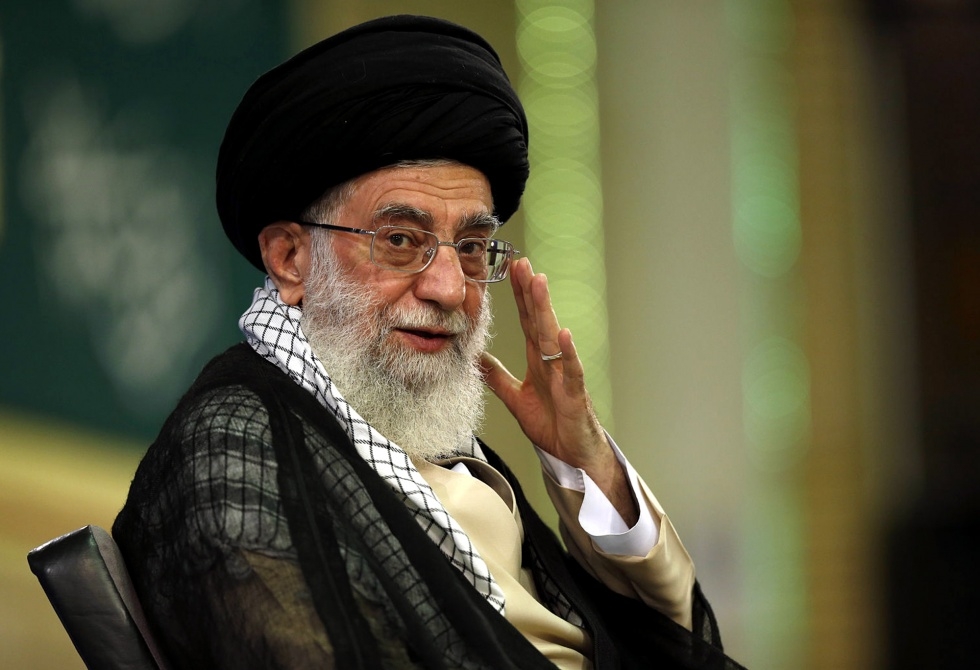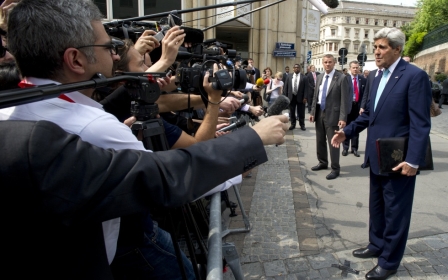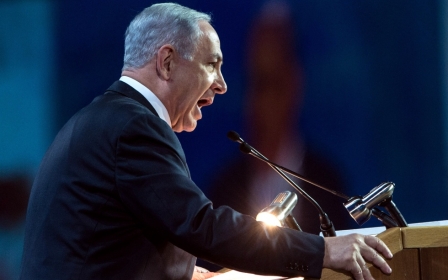‘Crunch time’ on Iran nuclear talks as US seeks non-binding deal

US Secretary of State John Kerry left Washington Thursday on a trip which will see him once again huddle with his Iranian counterpart in Switzerland aiming to seal a deal to curtail Tehran's nuclear programme.
Kerry's departure comes as Iran's Supreme Leader Ayatollah Ali Khamenei on Thursday warned against "deceitful" world powers and branded a letter from Republican lawmakers as a sign of America's internal collapse.
Khamenei said that while Iran has selected honest negotiators for the deal, "the other party is deceitful and stabs in the back."
Iranian officials "know what they are doing and they also know how to act in case of an agreement so that Americans cannot break it later," said Khamenei, who will have the final say on any deal.
Khamenei also said the Republicans' letter to Iranian officials indicated "the extreme decadence of political ethics and the collapse of the American system from within," ISNA news agency reported.
With the nuclear negotiations between Iran and world powers in the so-called P5+1 group now seen to be in the critical endgame, political tensions are soaring in the US among Republicans opposed to a rapprochement with America's old foe.
"I think we're all aware that the next couple of weeks are going to be important. They're vital. We're at the crunch time here," State Department spokeswoman Jen Psaki told reporters.
The White House has reacted angrily to the letter signed by 47 Republican senators insisting that any deal reached by the administration of President Barack Obama could be modified by Congress.
Kerry said that was "flat wrong" before he left, heading first to Egypt and then to Lausanne where he will meet from Sunday with Iranian Foreign Minister Mohammad Javad Zarif.
After years of stop-start negotiations, global powers have been holding months of intense closed-door talks with Iran since Iranian President Hassan Rouhani came to office in August 2013.
An interim accord struck in November 2013 has caused Iran to freeze much of its nuclear enrichment programme, in return for a slight easing of international sanctions that have damaged the country's economy.
Non-binding agreement
Meanwhile, the Obama administration said it was seeking a non-binding agreement with Iran in order to have flexibility with Congress and international law, administration officials said on Wednesday.
US officials said a deal with Iran will not be binding and thus will provide the administration flexibility in its actions against Iran as well as sparing the administration from congressional blockage.
The overriding reason for the administration to prefer a “non-binding arrangement” to a “binding treaty” is the need to “preserve the greatest possible flexibility to re-impose sanctions," Psaki said.
A binding deal will create obligations on the parties under international law and violations of any obligation will require a legal process at the International Court of Justice and other international organisations including the UN Security Council.
A non-binding instrument carries significant moral or political commitments rather than obligations and is not subject to international law that allows for parties to take action against violators of a deal.
Psaki said a non-binding arrangement would provide flexibility to reapply sanctions in a "faster manner”.
She also provided historical examples where the US pursued international security initiatives through non-binding arrangements.
“In the arms control and non-proliferation area alone, some representative examples include the US-Russia deal to remove chemical weapons from Syria, the proliferation security initiatives and nuclear supplier group guidelines,” she said in reference to accords regarding nuclear proliferation and weapons of mass destruction.
The administration’s preference for a non-binding deal, besides having a lot to do with international law, also opens the door for it to bypass congressional approval.
“We're not negotiating a, quote, ‘legally binding plan.’ We're negotiating a plan that will have in it a capacity for enforcement,” Secretary of State John Kerry told the Senate Wednesday. “The senators' letter erroneously asserts that this is a legally binding plan.”
No further irritations
As a 31 March deadline for a political framework looms, Kerry and other US administration officials denounced the Republicans' letter as undermining America's credibility not just with Iran, but with the other global powers involved in the talks - Britain, China, France, Germany and Russia.
The letter allows Iran to cast doubt on the credibility of the West, German Foreign Minister Frank-Walter Steinmeier agreed at a Washington think tank, adding, "This is not a trifle."
"The negotiations are difficult enough, so we didn't actually need further irritations," Steinmeier said on Thursday.
Zarif is also due to meet with European negotiators in Brussels on Monday, and is expected to then return to Lausanne for further meetings with Kerry.
Psaki refused to predict whether a deal could be reached on this Kerry trip, and recalled that the US secretary of state is due to return to Washington for meetings on 23 and 24 March.
The Persian New Year, Nowruz, is also due to be celebrated in Iran around the same time.
"I think our expectation is that we will work 'til the end of March," Psaki told reporters.
Iran has always denied seeking to arm itself with a nuclear weapon, but global powers insist it must prove that its atomic programme is purely peaceful.
"Iran's path to the nuclear bomb must be blocked in an unambiguous, verifiable and durable way," Steinmeier said late on Wednesday before dining with Kerry.
Steinmeier also met US National Security Adviser Susan Rice and discussed the "shared efforts to ensure that Iran's nuclear programis exclusively peaceful" a National Security Council statement said.
New MEE newsletter: Jerusalem Dispatch
Sign up to get the latest insights and analysis on Israel-Palestine, alongside Turkey Unpacked and other MEE newsletters
Middle East Eye delivers independent and unrivalled coverage and analysis of the Middle East, North Africa and beyond. To learn more about republishing this content and the associated fees, please fill out this form. More about MEE can be found here.




